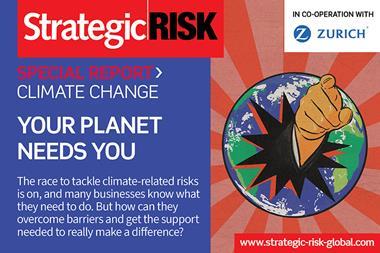Experts at Airmic’s virtual Climate Change forum had a message of hope as they identified more joined-up thinking on the climate challenge
“We operate in different sectors of a complex economy and I hope we’re getting to the point where we can recognise that our message in the same,” said Tim Lenton, Professor of Climate Change and Earthquake System Science at Exeter University, in his opening speech on climate tipping points at Airmic’s virtual Climate Change forum.
“Some of our governments are on message as well, so there is increasingly a shared commitment and understanding,” he added. “And hopefully regulators and top down governance will align with bottom-up social change.”
From an investment perspective, the tipping point has already been achieved, thought David Harris, head of sustainable business at the London Stock Exchange Group. Sustainable investments are now mainstream, he explained, with pension funds driving the ESG agenda where asset managers are concerned.
But there is a need for more consistent data and reporting standards globally. “Investors need that and companies don’t want multiple different frameworks so standard bodies need to come together around basic reporting,” he noted.
Martin Bertogg, head of Cat Perils and Cyber at Swiss Re Institute, said all stakeholders had a responsibility to act. He cited macro trends such as population growth, urbanisation and migration as a societal issue, and questioned the ongoing insurability of certain pockets as these trends come together with climate change to exacerbate exposures.
Bertogg pointed out that migration to the coast - where assets are at more risk of windstorms, coastal flooding and sea level rise - is a global phenomenon and a particular challenge in Asia Pacific.
“Perhaps if people have their feet wet all year round they will walk away? It becomes a question of economics at some point in time. How much premium are you prepared to pay if you are simply pre-financing a certain loss?”
“Communities and corporations have to react to the exposure in terms of mitigation and adaptation, before it’s already there.”
Scientific studies into how climate change is influencing weather patterns, and in particular extreme catastrophe events, are ongoing, explained Lenton and Bertogg.
However, other geopolitical risks arising out of the climate crisis could potentially result in greater global disruption than extreme weather events and natural perils, such as mass migration and wars over resources, they warned.




















No comments yet